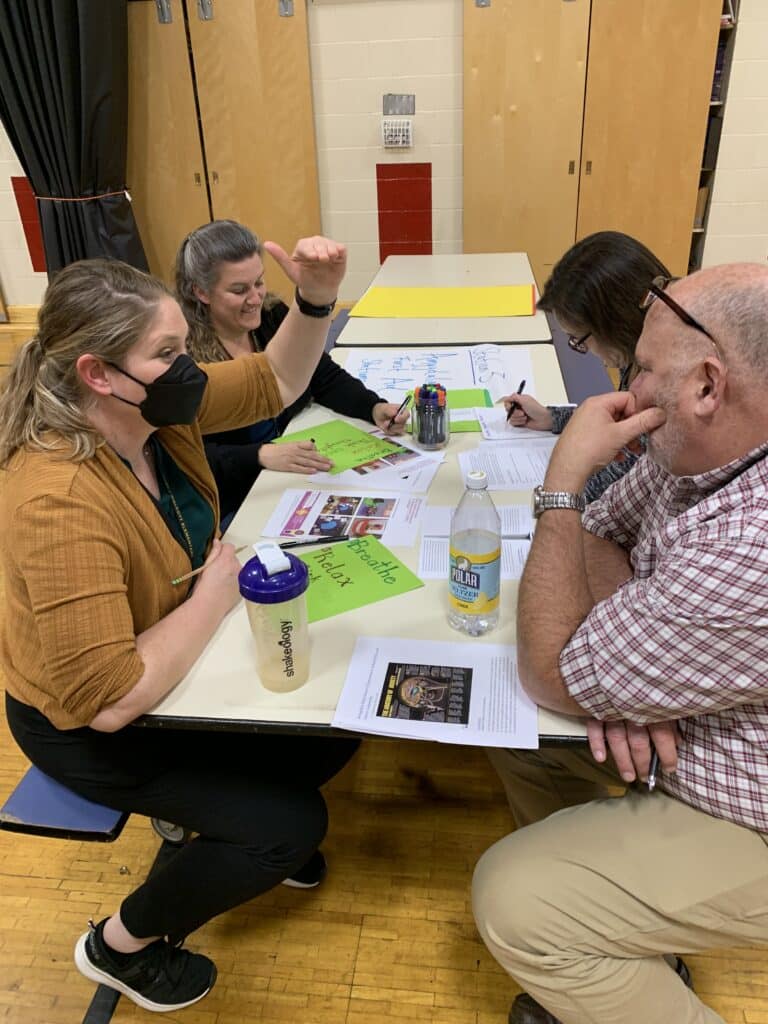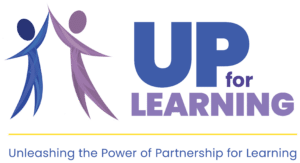
The integrity of authentic partnerships between youth and adults is tied to mutual respect, equity in an on-going exchange of ideas and input, and shared responsibility. All of UP for Learning’s work depends on creating. Adults bring a wealth of professional expertise to school redesign efforts, a systems-level perspective, and a wide array of skills accrued over time; youth bring their perspectives on the current learning experience, and have the wisdom, creativity, and proven capacity to partner in school transformation efforts. And, for both parties to grow in their understanding and commitment to change, they sometimes need to learn in separate spaces. UP’s work also supports differentiated training for youth and for adults.
One of the core challenges UP puts before its teams is to understand their WHY. The variety of life experiences, biases, and interactions with educational systems each adult brings can make it difficult to find consensus on hard, essential questions that are crucial to successful partnership, such as:
- What do adults need to do to support students in this work?
- How do you define leadership?
- What does it look like when adults and youth share power, responsibility, and decision making?
- How will it feel for adults to embrace the ongoing nature of this intentional but unpredictable work?
- What norms would need to be created and what barriers would need to be removed to allow a wide range of students to succeed in this work?
- How does it feel to be vulnerable around youth in your school community?
UP’s scope of work often includes specific professional development work with staff, who all have varying degrees of involvement with youth. In all cases, UP helps adults see and make connections to the universal and cross-generational desire to be valued, heard, and nurtured.
- This year the Montpelier Roxbury Public Schools (MRPS) offered youth-led professional development on all of their inservice days on creating a culture of belonging for all students and staff in MRPS. This training builds on last year’s impactful fishbowl conversation where staff listened to students honestly share answers to questions about their school experience. At a recent training, all MRPS staff were led by youth facilitators in UP’s I Matter activity. The activity asks participants to recall experiences where their input or voice was either solicited and valued in a decision impacting their lives – or not. The feelings elicited in both scenarios were identified individually and named as a group. These attributes were then related to their MRPS’s culture, creating an awareness of the degree of alignment with these principles.
- At Proctor Junior/Senior High School, youth facilitators have been invited to help plan community building circles and activities for staff. With a focus on restorative practices, the staff has worked on effective ways to give feedback, reviewed best practices for circles of caring, and revised their school agreements.
- Alongside the Lamoille Restorative Center, UP also co-facilitated a professional development session for the Wolcott Elementary School staff. This retreat allowed adults to review their prior learning on brain science, trauma, and behavior and then to create materials for their classrooms. Some made posters reminding students about ways to regulate, some worked on agendas and meeting protocols centered on restorative practices, and some talked in smaller groups about changes in tactics to improve classroom and school climate. There was general appreciation for the time to connect, share, and strategize – and some laughter too.
Another opportunity supports Getting to ‘Y’ (GTY) team advisors. In Spring 2021, thanks to generous funding from the Vermont Department of Health, UP convened experienced GTY advisors to help develop a structure for a new “Advisor Network” group that allows regular opportunities to meet with UP and other advisors to share ideas and resources at various stages of GTY, normalize and support challenges, share successes, and celebrate. Challenges brought to the group have included keeping the team engaged, motivated, and moving forward, especially with scheduling challenges, finding additional opportunities for the group to lead dialogue/be experts in data, and encouraging the community to add input. Advisors have also shared activity ideas and resources with each other, further enriching their GTY experience.
UP welcomes opportunities to bring groups together, to coach adult school partners in being adaptable and intentional, and to support youth and adults in making change over time.

